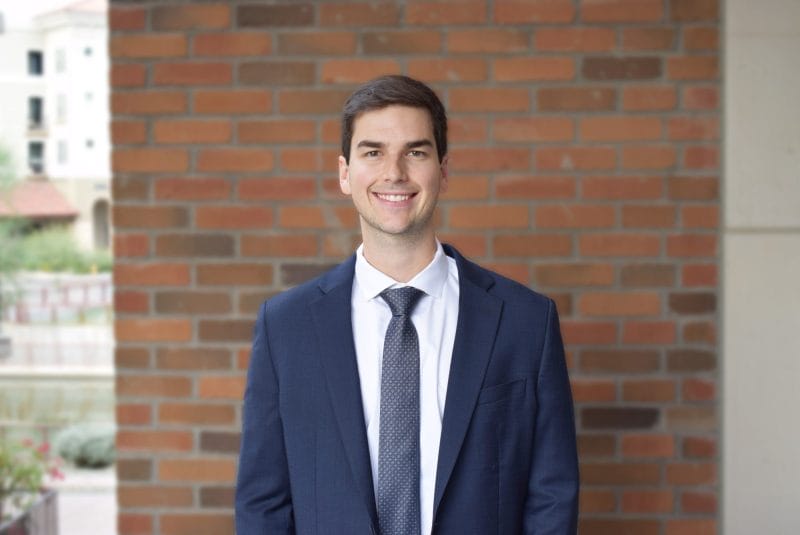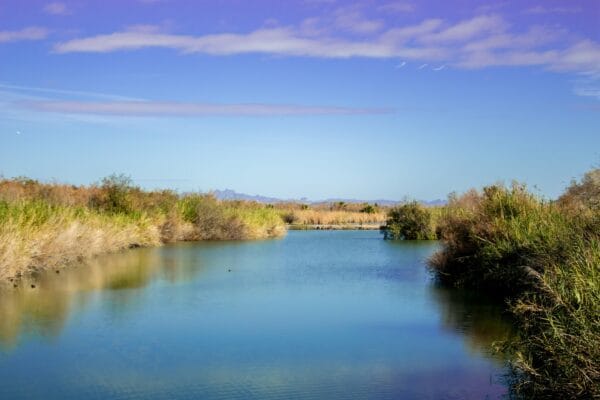Photo and story by Jessica Boehm | Cronkite News
Arizona law enforcement must be involved in securing “the rural parts of the Southwest border,” which is still dangerously insecure, Cochise County Sheriff Mark Dannels told a Senate panel Tuesday.
“Sheriffs are a direct voice of trust in their respective counties so I think it’s important that we continue that voice with the sheriffs,” said Dannels, who told the Senate Homeland Security and Governmental Affairs Committee not to “ignore us.”
Dannels’ testimony came during a two-hour hearing that brought residents and officials from Texas and Arizona to Washington to share their “perspectives from outside the Beltway” on Southwest border security.
The committee chairman, Sen. Ron Johnson, R-Wis., said it was the first in a series of hearings and roundtable discussions focused on problems along the Southwest border. Witnesses Tuesday had plenty to share.

“I want to be crystal clear: The border is not secure,” said Chris Cabrera, a Border Patrol agent who was testifying on behalf of the National Border Patrol Council.
Cabrera said some people don’t realize the extent of border issues because the Department of Homeland Security uses data that inaccurately shows that border patrol agents are “75 percent effective in apprehending illegal immigrants and drug smugglers.”
A more realistic metric is somewhere between 35 – 40 percent – and that percentage is even lower when dealing with experienced criminals in the drug cartels, he said.
Dannels said trafficking of drugs and people has “diminished the quality of life” for residents of Cochise County and placed “unbearable strain” on the county’s budget and resources.
Howard Buffett, chairman and CEO of the Howard G. Buffett Foundation, owns two ranches in southern Arizona, one on the Mexico border.
“When you live or operate close to the border, it’s like living in another world,” Buffett testified.
He said that security problems along the Southwest border have created “a serious humanitarian crisis,” which has caused “people to die attempting to reach our country while putting our own citizens at risk.”
“Those who live in communities along our border assume a higher risk to their personal safety that can be frightening and at times deadly,” Buffett said.
Dannels laid the problem squarely at the feet of federal officials, whose changes to border priorities in the 1990s forced illegal activity into the rural areas along the border.
“I am not proud to say that today we are a product of the federal government’s plan,” Dannels said.
Dannels said that fear is rampant along the border – with many of his constituents afraid to leave their homes.
“It’s just a horrible way to live when we live in the United States,” he said.
Sen. John McCain, R-Ariz., said at the hearing that the border can be secured through proper use of assets, strategies and technology.
“Those who say, well you just can’t do it – they obviously are incorrect because every nation has the obligation to have a safe and secure border,” McCain said.
He pointed to his introduction Tuesday of the “Arizona Borderlands Protection and Preservation Act,” which would grant Border Patrol agents access to federal land anywhere along the Southwest border for security and surveillance activities.
Dannels had said earlier that federal efforts should focus on “border security first, immigration reform second.”
The crime associated with illegal immigration has diminished the sense of security of people in the rural Southwest, he said, pointing to a sharp decrease in the population of Cochise County.
“People are leaving our county because of the way it is,” he said. “They don’t want to live in fear.”
By bringing local stakeholders to the table, Dannels said the government will be able to create better solutions to the complex problems faced by Cochise County residents.
“Those that choose to live on our border should deserve the same freedom and liberty as those that live here in D.C., Iowa and beyond,” Dannels said.







